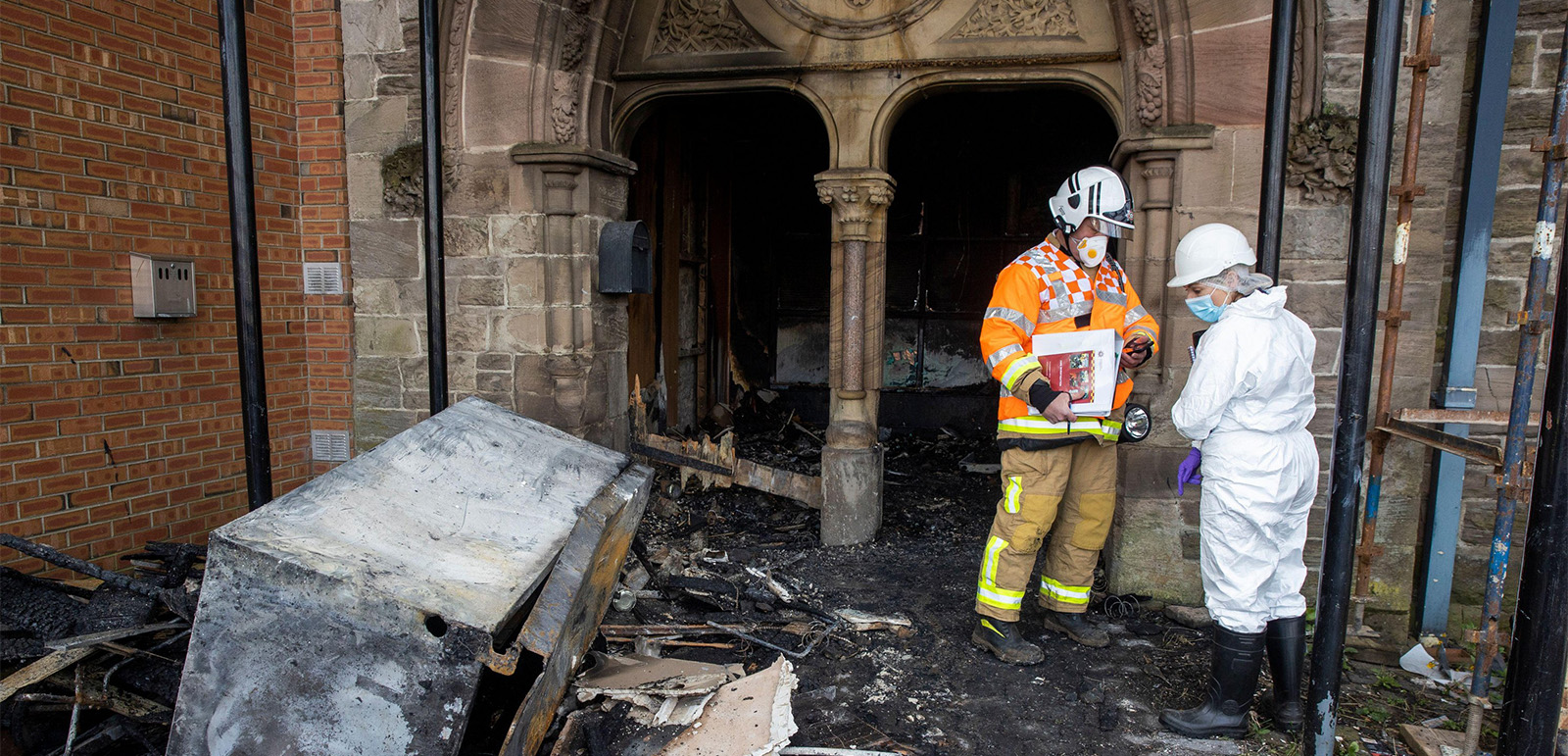Belfast Multi-Cultural Association forced to close after double arson attacks
Leaders believe blazes were motivated by racism and Islamophobia
–

A leading community organisation in Belfast is facing a precarious future after its premises were subject to two major arson attacks in the past two years.
Muhammad Atif, a trustee of the Muslim-run Belfast Multi-Cultural Association (BMCA), said the initiative has received Islamophobic and racist threats since its launch in 2015, but little action has been taken by the Police Service of Northern Ireland (PSNI).
Following the first attack on the premises, located in the city centre, in January 2021, local people raised £71,000 to fund repairs to the building. However, hours after the repairs were completed in April 2022, the building was set alight again. “This time, they targeted the side of the building that survived the first fire,” Atif said.
Volunteers have said they felt too scared to return and the BMCA is now being forced to sell the building and find a new home.
The organisation receives no local government funding and relies entirely on volunteers and donations. The centre, which hosted over 500 visitors a week, included a food bank, shower rooms that could be used by homeless people, a laundry room, a cafe and a prayer area. The BMCA said it had hoped it could one day expand to include a mosque.
While the two worst arson attacks were widely reported at the time, Atif said that a third smaller fire had been attempted at the site in March 2022. “The scaffolding that was there to repair the roof was burned on one side. The damage wasn’t huge — we reported it, but the police did nothing.”
Both the January 2021 and April 2022 fires were treated as hate crimes by the police and the BMCA believes the incidents were “clearly Islamophobic”.
“If this was a non-Muslim organisation, this would have been a completely different situation,” Atif said. “The problem is the colour of our skin and what we believe.”
So far, no charges have been made. Patrick Corrigan, Amnesty International’s Northern Ireland programme director and the organiser of the January 2021 fundraiser, said the incidents had left the area’s Muslim community feeling “fearful and insecure”.
“The attacks were carried out by a small number of individuals who were motivated by racism and Islamophobia. They acted with a sense of impunity, and the police have failed to hold them to account,” Corrigan said. “Amnesty International is very disappointed. We will continue to press the police to do better for victims of racist hate crime.”
Following a break-in at the premises and the vandalism of volunteers’ cars on four occasions, the association met with the PSNI in November 2020. Atif stated that during the meeting, police officers said that unnamed “local community leaders” had taken issue with the BMCA’s activities.
“When I asked the officers to explain the problem, they said, ‘The local community thinks you come into this building and pray, and they don’t like that you come here wearing your traditional clothes. Instead of acknowledging that this was wrong, it felt like the officers were delivering a message from them to us.”
Tell MAMA, an NGO that monitors Islamophobia in the UK, said serious action was needed to improve inter-community relations in Belfast.
“It is deeply depressing to hear that communities do not want to come back and use the Belfast Multi-Cultural Association,” said Iman Atta OBE, director of Tell MAMA.
“The sad fact is that the arsonists who did this and who want to divide communities have won. There needs to be some serious work done on social cohesion between white and non-white communities in Belfast and between settled communities and new migrants into the city. What has happened is totally unacceptable.”
In a statement to Hyphen, the PSNI said officers investigating the attacks have “exhausted all active lines of enquiry”.
“As an organisation, we understand the impact these type of attacks have on vulnerable people and any reports of hate crime are taken very seriously,” said Darrin Jones, Belfast area commander and chief superintendent.
Topics
Get the Hyphen weekly
Subscribe to Hyphen’s weekly round-up for insightful reportage, commentary and the latest arts and lifestyle coverage, from across the UK and Europe
This form may not be visible due to adblockers, or JavaScript not being enabled.